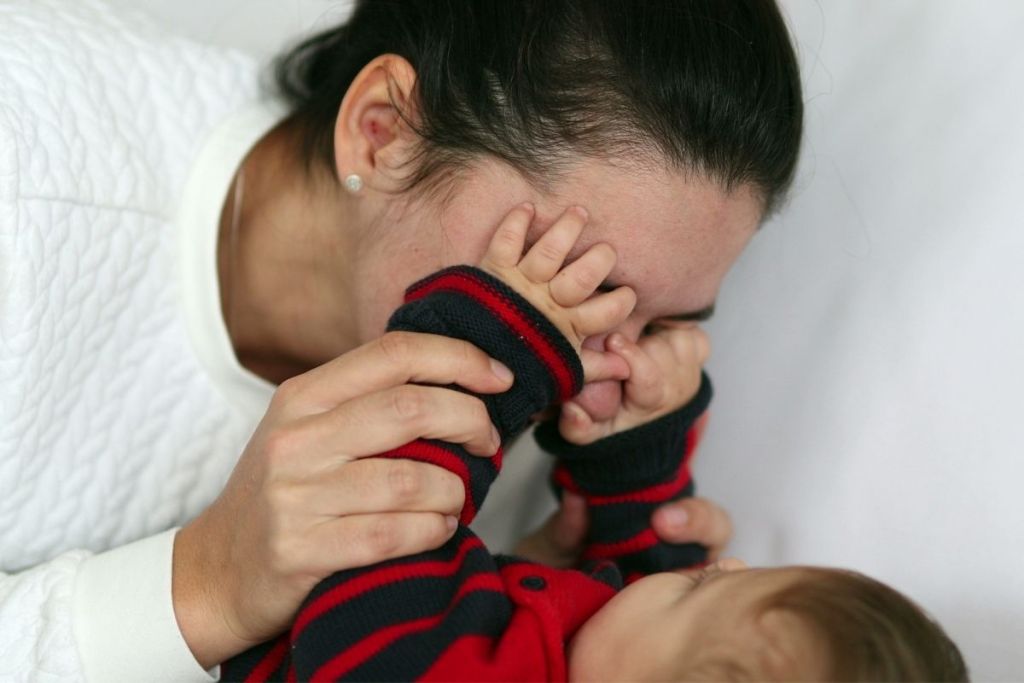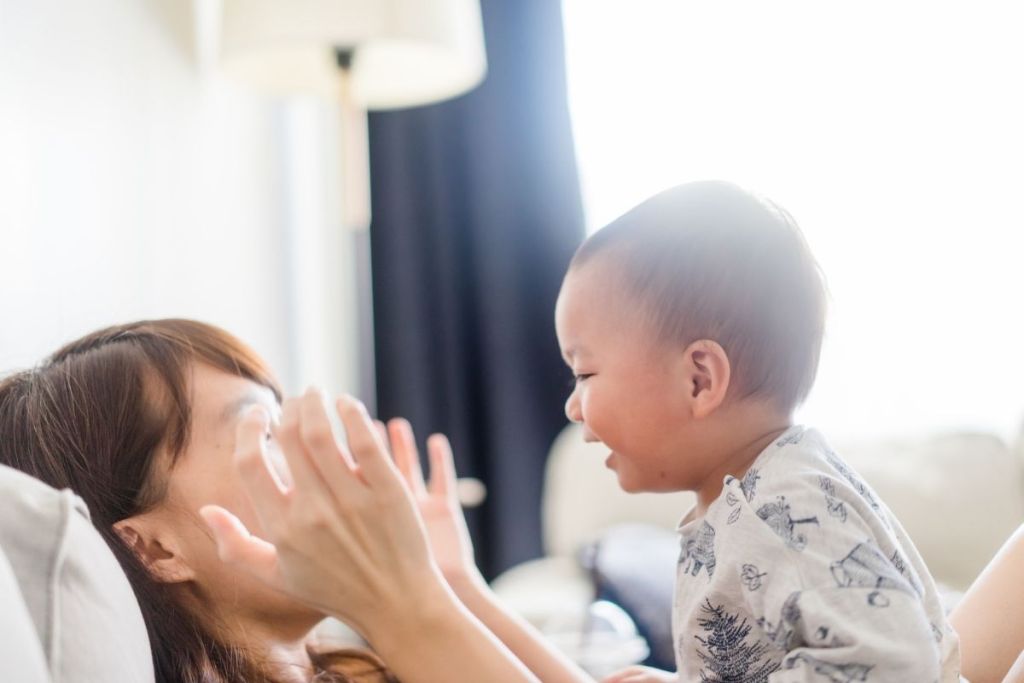Why Do Babies Think Peek a Boo Is Funny
Peekaboo, I see you! The classic game of peekaboo teaches so much more than anyone could guess from how simple it is. It's free and easy, and it builds so much in your baby's brain each time you play. But what if they're not interested? We'll go over when babies peekaboo and when to worry if they don't.

Why should babies play peekaboo?
Babies gain a lot from the seemingly simple game:
- Visual stimulation creates new brain cell connections, and the repetition strengthens them.
- They learn socially about taking turns, eye contact, smiling, and give-and-take.
- The game builds gross motor skills and strengthens visual tracking.
- Laughing enhances learning (one survey showed peekaboo is the best way to make babies laugh around the world).
- Peekaboo develops the idea of object permanence, the idea that something out of sight is still there.
- It gives them an adult's undivided attention.
- It builds trust that you always come back.
"It's a fun game, it's a joyful game, but it's actually getting at an emotional core for the toddler," says Tovah Klein, director of the Barnard College Center for Toddler Development and author ofHow Toddlers Thrive. "They're saying to the child, 'I'm here for you every time you leave. I'm not going away.'" It can actually be used to rebuild trust with traumatized children.
Seeing your smiling face come out from behind your hands is so simple but your smiling face looking at theirs is one of the most important and beneficial foundations for your baby's development. Even without all of the other benefits, this one alone makes it worth it.

When do babies play peekaboo?
Babies can love peekaboo even from a newborn stage and all the way up through being a toddler. The concept of object permanence develops anywhere from 4 to 12 months old, and the idea that you're really "gone" will begin to fade then. However, waiting for you to come out of hiding is still fun even if they don't think you've truly disappeared anymore. Their love of the game can stay throughout the whole time they begin to grasp the concept and trying to figure out if you're really gone or not is part of the fun.
Even without the idea of object permanence, babies love the surprised and smiling expression you make when you pop out. Reactions to facial expressions begin around 3 months old.
Babies' reactions to peekaboo develop as they do. At three months old or less, they may smile or coo at you when you play. At 3-6 months old, a baby can begin to visually follow your face where it reappears. At 6-9 months old, they may laugh at the game, and at 9+ months old, they may imitate or initiate the game.
Like with all milestones, expected ages are just averages and guidelines to give you a general idea, not a rule. If a baby isn't reacting to facial expressions on the day they turn 3 months old, it's no reason to panic. It becomes more of a cause for concern when months and months beyond the milestone guideline age pass and the baby is still not showing any interest.
When should I be concerned if my baby doesn't play peekaboo?
Not playing peekaboo is not a reason to call the pediatrician between check-ups, but you can definitely bring it up with your baby's doctor the next time you go if you are concerned.
Babies can begin laughing around 4 months old, but if they aren't, don't automatically worry. Babies all develop on their own time but discuss any missed milestones like this with your pediatrician.
Unlike a physical milestone like walking, laughing is about personality, and some kids are naturally serious. Some babies may never show interest in peekaboo just because they prefer other games and that can be chalked up to individuality.
Not showing an interest in peekaboo isn't necessarily a reason to worry on its own, but you and your pediatrician will look at your whole child and see if it fits with other personality traits and parts of their development that all added together could help hint at a future diagnosis. Not playing peekaboo on its own cannot lead to any diagnosis without other contributing factors. If you have any cause for concern, always consult your pediatrician.
Editors' Recommendations
- 5 best books for expecting dads every first-time father should read
- How much screen time is too much for teenagers? You might be surprised
- Expert advice: Gender identity terms, explained in a way a grade-schooler can understand
- 8 best podcasts for new moms who have dozens of questions
- 5 hobbies for teens that will help combat their addiction to video games
farrellyource1936.blogspot.com
Source: https://www.newfolks.com/stages/babies-peekaboo/
0 Response to "Why Do Babies Think Peek a Boo Is Funny"
Post a Comment